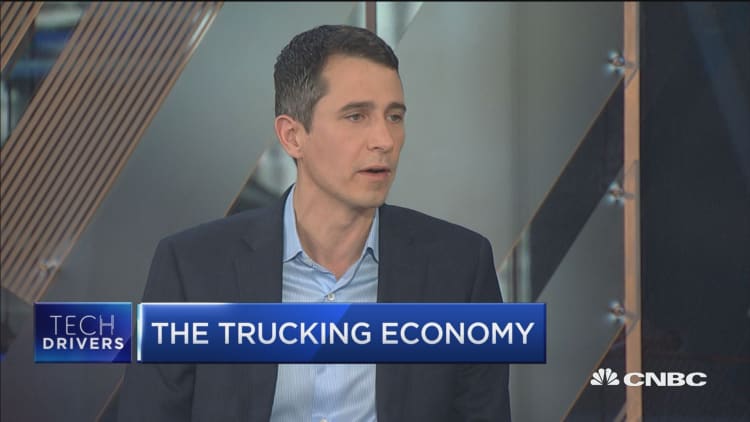Autonomous vehicles and Amazon may be the shipping industry's buzzwords today, but blockchain is well on its way to becoming the future.
United Parcel Service announced on Tuesday it has joined the Blockchain in Trucking Alliance (BiTA), the latest logistics company taking a closer look at the platform's offerings.
"The technology has the potential to increase transparency and efficiency among shippers, carriers, brokers, consumers, vendors and other supply chain stakeholders," Linda Weakland, UPS director of enterprise architecture and innovation, said in a statement.
UPS' foray into blockchain — a technology that the Chicago Fed defines as "a network of users, each of which stores its own copy of the data" — is not a surprise to investment group Stifel, however.
"In our view, blockchain will combine with the truckload pricing futures market, with data analytics-assisted [and] artificial intelligence-assisted real time matching of loads and empties," Stifel analyst John Larkin wrote in a note on Oct. 29.
Larkin said three companies will "invest enough in technology to drive the consolidation of the industry around these core transformational technologies:" UPS, C.H. Robinson Worldwide and XPO Logistics.

The Stifel picks came after a conference call featuring Craig Fuller and Chris Burress, the founder and president of BiTA, respectively.
"The theory is that the blockchain-enabled supply chain participants will be able to handle transactions more quickly, more securely, with fewer errors and less labor cost involved in the overall process," Larkin said.
Consumers are among those who could benefit from the widespread adoption of blockchain technology throughout the logistics industry, Stifel said. Products would arrive more cheaply, quickly and precisely, Larkin writes, thanks to blockchain. Even software providers, data providers, and trailer-leasing companies are among those who could see greater value from day-to-day operations if the technology is implemented as theorized.
But "there are several groups positioned to be totally or partially" disrupted by blockchain's introduction into the trucking business, Larkin says.
"The potential losers [are those] that choose not to comply with the BiTA industry standard protocols or that choose not to be transparent," Larkin said.
Overall, Stifel says that "blockchain should make transactions more efficient and reduce payment disputes but is still years away."
UPS said it is joining BiTA as a part of its effort to build the next evolution of its logistics network.
Shares of UPS were up 0.3 percent in midday trading Tuesday.
WATCH: What is Blockchain? CNBC explains



